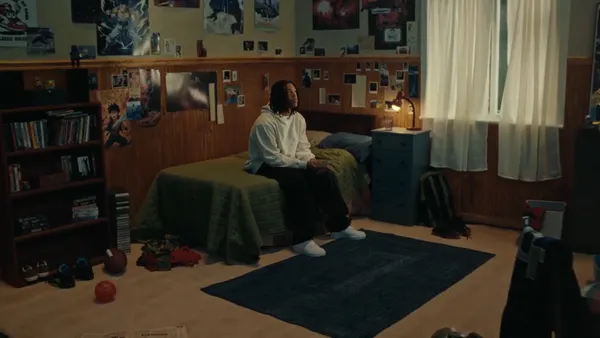Dive Brief:
- Nike has acquired RTFKT, a studio that develops virtual collectibles and experiences, according to an announcement. Financial terms of the deal were not disclosed.
- Founded in 2020 by Benoit Pagotto, Chris Le and Steven Vasilev, RTFKT — pronounced "artifact" — leverages technologies like gaming engines, blockchain, augmented reality (AR) and nonfungible tokens (NFTs). Virtual sneakers have been a product focus. A February collaboration with the digital artist Fewocious that appeared to take inspiration from Nike's Air Force One model sold out in seven minutes and notched $3.1 million in sales, according to The Wall Street Journal.
- In a press statement, Nike President and CEO John Donahoe said the deal helps firm up the company's digital transformation and efforts to cater to creators at the intersection of sports, creativity and gaming culture. Nike is making another bet on the long-term viability of a metaverse that will require marketers to blend aspects of the digital and physical worlds.
Dive Insight:
Amid a rush to capitalize on the hype around NFTs, Nike is firming up its strategy by snapping up a firm specializing in the creation of digital collectibles relevant to its business, namely sneakers. The sportswear company will invest in the RTFKT brand and its creative community while trying to broaden its own digital capabilities and footprint, per the announcement.
Nike continues to be an early mover on the metaverse, and the acquisition could serve as a way to leapfrog rivals like Adidas that are eyeing similar opportunities. The move could also lay the groundwork for more metaverse dealmaking as marketers try to navigate a budding category that involves complicated technology and whose mainstream appeal remains largely unproven. RTFKT, which has only been in operation since 2020, in May secured $8 million in a round of seed funding led by Andreessen Horowitz, per Highsnobiety, putting its total value north of $30 million.
Earlier this fall, Nike started filing trademark applications around virtual sneakers and apparel in a sign that it would ramp up its metaverse bets. Then, in November, it opened a "Nikeland" experience on Roblox, an online gaming platform popular with Gen Z and Gen Alpha. The sprawling interactive space draws inspiration from Nike's real-life headquarters and features a variety of activities such as dodgeball and a showroom to try on virtual goods. Much like the RTFKT acquisition, the activation recognizes that Nike will need to invest more in spaces like gaming if it wants to connect with young consumer groups who have a different perspective on the sports category.
Creating digital versions of desirable products is not new territory for Nike. The company's Jordan Brand started releasing virtual shoes in Fortnite years ago, and recently iterated on the concept with a dedicated Jumpman Zone! area within the video game.
Still, NFTs and other collectibles are a red-hot market at the moment and one where brands are starting to see success. Budweiser dropped its first batch of NFTs in late November with an extensive "Heritage Collection" that sold out within an hour. Coca-Cola auctioned off its NFT for over $500,000 in August, while Pepsi last week made its first crack at the format with a Mic Drop collection consisting of 1,893 unique assets.
The sneaker category has long been known for generating massive amounts of hype, product scarcity and the chase for rare models on the secondhand market. If Nike is able to translate those factors into the virtual arena, it could not only shore up its brand equity and appeal with technology-savvy consumers, but also tap into a new source of revenue.
Nike is shaking up its marketing elsewhere as well. The brand is putting its $1 billion global media account under review, Ad Age reported, citing people familiar with the matter. A motivating factor could be Nike moving more resources from brand-driven to performance-driven channels, one source indicated to the publication.














